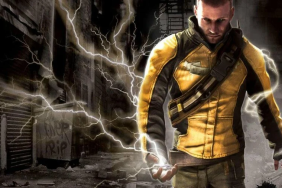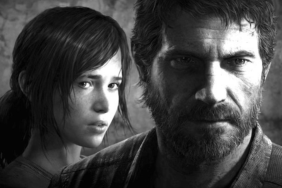Sucker Punch Entertainment’s inFamous released seven years ago last week, and one of its main draws was allowing players to choose between good and evil. Depending on which route players went, they got to experience different stories, and were granted different abilities. It added a ton of replayability to the game, and was a stellar concept back in 2009.
While it wasn’t the first game with a morality system, and they’ve only become more common as time has gone on, inFamous still sticks out as doing a great job with it. To celebrate the series’ recent anniversary, we’ve put together a list of 10 PlayStation games with morality systems. Hopefully this will help scratch that itch as we wait to see what Sucker Punch does next.
We hope you enjoyed our look at 10 PlayStation games with morality systems that let you choose between good and evil. The concept has been around for quite some time, and it’s great to see so many brilliant uses of it! While we only named 10, there’s other popular series that have toyed with these tough choices.
Let us know in the comments what video games with morality systems you’ve enjoyed in the past, and which one you feel like implemented them the best!
Essential Reading:
- Top 5 Games We’re Excited to See at E3 2016
- Anime Game Adaptations That Should Happen
- inFAMOUS: What Next for Sony and Sucker Punch’s Superhero Franchise?
Good vs Evil games
-
Games With Morality Systems
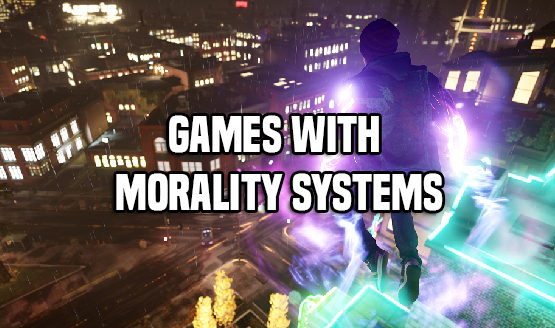
-
Catherine

Relationships can be tricky and messy to handle. Few games show how difficult they can be to juggle as Catherine does, and players will have to make the choice to either stay faithful with their current girlfriend, Katherine, or cheat on her with the titular character. The puzzle game's story changes drastically depending on these moral decisions, and it all falls on the player to balance life and love.
-
Mega Man Legends 2
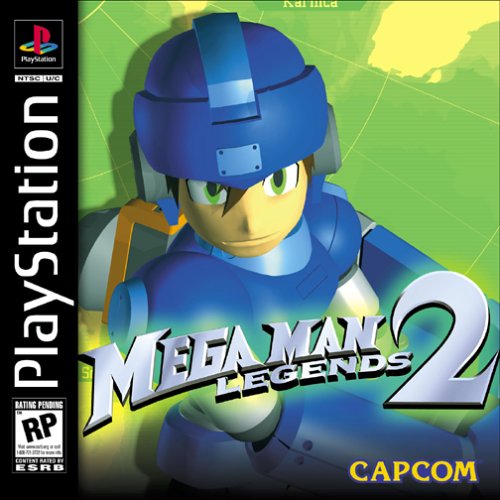
Mega Man Legends 2 is the oldest game on this list, and understandably it's morality system is pretty bare bones. Players can make the Blue Bomber behave good or bad, and it's actually displayed via the color of his armor. If you're bad (and thus have a darker armor) you'll be punished and have to pay higher prices at shops. It's largely inconsequential, though, so you might even play through the game and not notice the morality system!
-
Battlefield Hardline
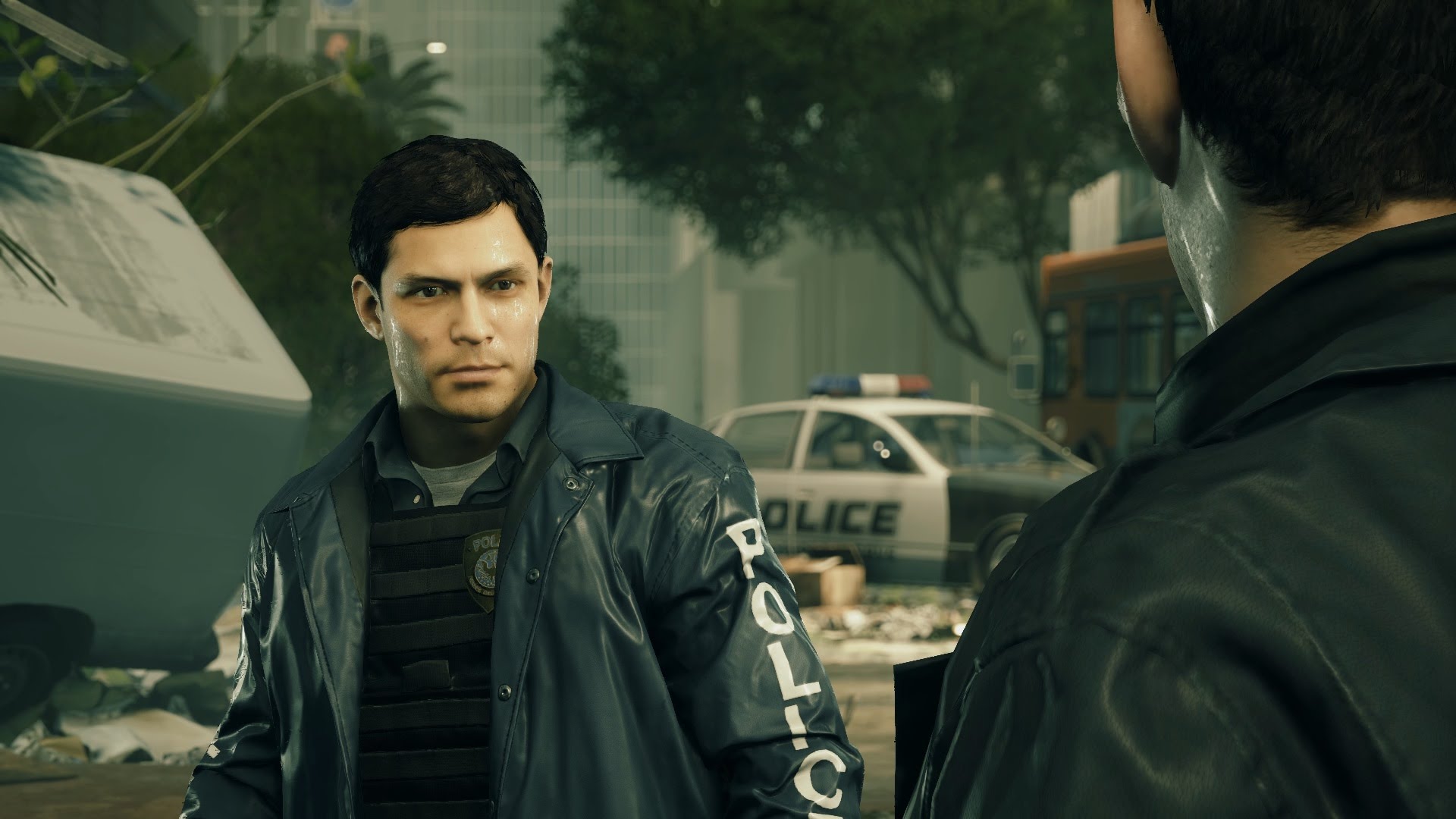
Battlefield Hardline's campaign lets gamers play both good cop and bad cop. As such, players who want to protect the badge will want to make sure to not use excessive lethal force, while more reckless players can cause as much damage as possible. The story it tells is not without flaws, but it does pose some interesting questions.
-
Red Dead Redemption
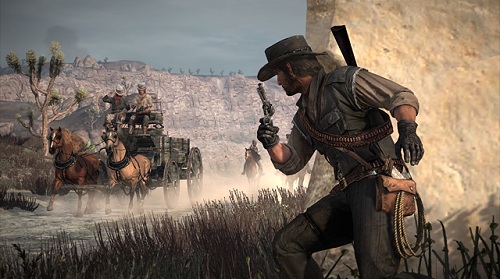
Morals really weren't something many were concerned with in the Old West, and Red Dead Redemption uses that gray area brilliantly. Players can make John Marston a relentless murderer if they wish, and town areas will react accordingly due to his notoriety being raised. Overall, it's handled pretty well and is one of the many reasons the game should be played.
-
Dishonored
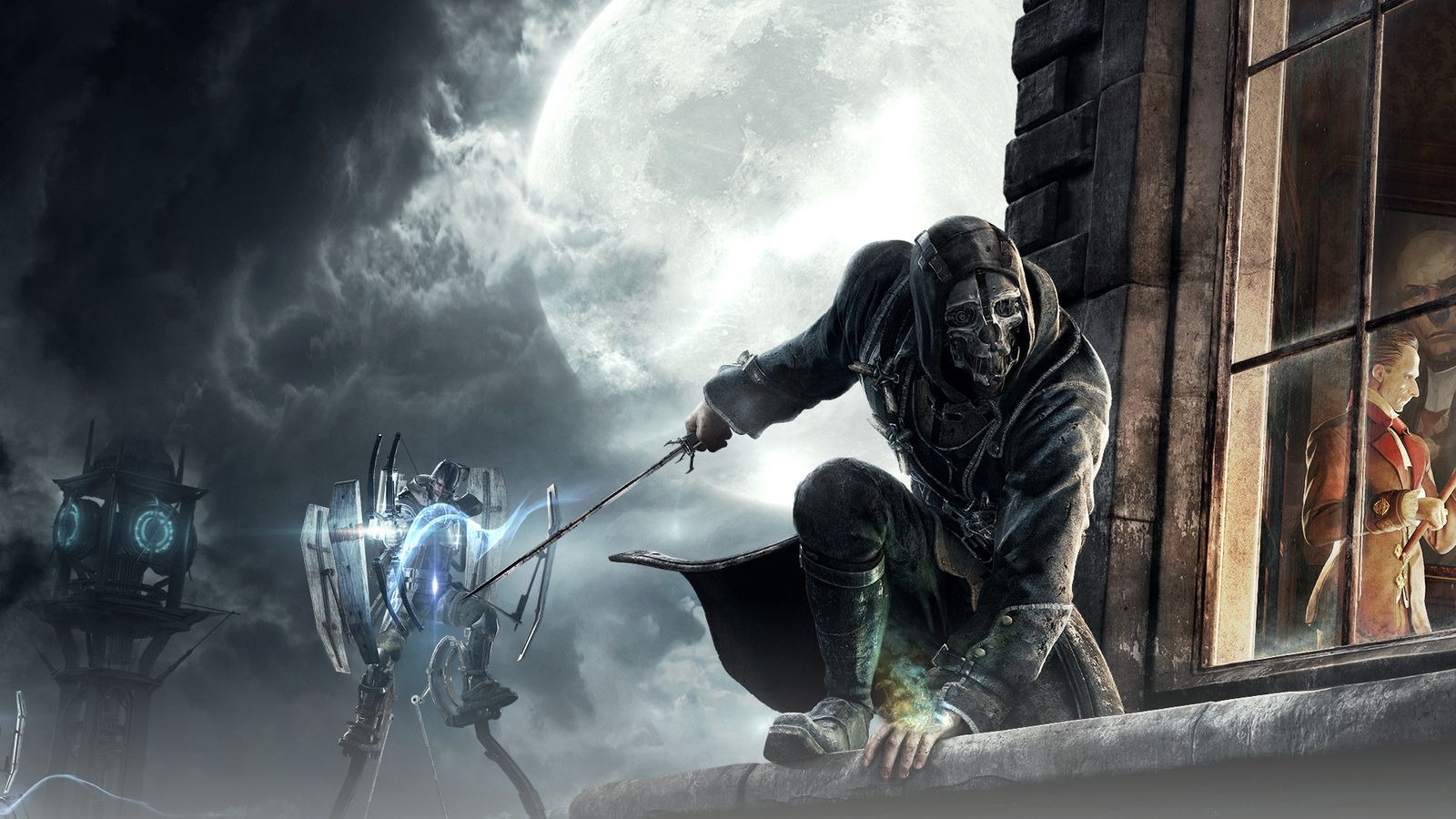
Stealth games are prone to discussions of morality, and Dishonored is no different. What's especially interesting here, which isn't seen elsewhere in the genre, is how the game adapts to your choices. If you play non-lethally, you'll find less resistance later on. Conversely, the more violent you are, the more enemies you'll find as alarms are raised. It's an interesting system that might make you rethink how you play stealth titles.
-
InFamous

The entire inFamous series is all about being good or evil. Moral choices are often pretty clear cut, but there's rewards each way. Typically, there's cooler upgrade paths and weapons to be had for being evil, so you'll have to ask yourself if being a good guy is worth less awesome attacks. Or you can just play the campaign twice and experience both sides of the same coin.
-
Mass Effect
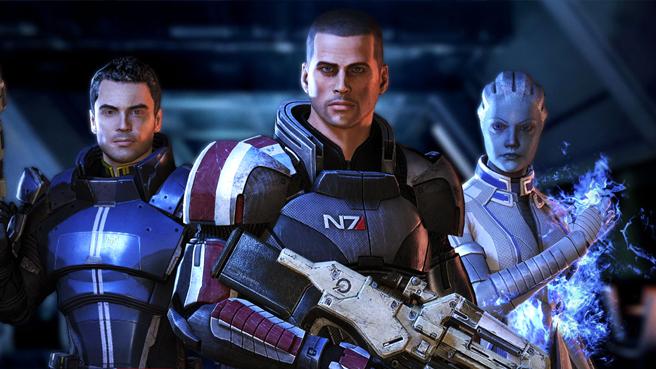
Bioware is well known for making players make tough choices and it's really seen in Mass Effect. Players will have to choose if their Shepard is an upstanding space citizen or not, and there's often reasoning to back up any dirty work. It's hardly black or white, and players can even learn something about themselves while playing through the trilogy.
-
Alpha Protocol
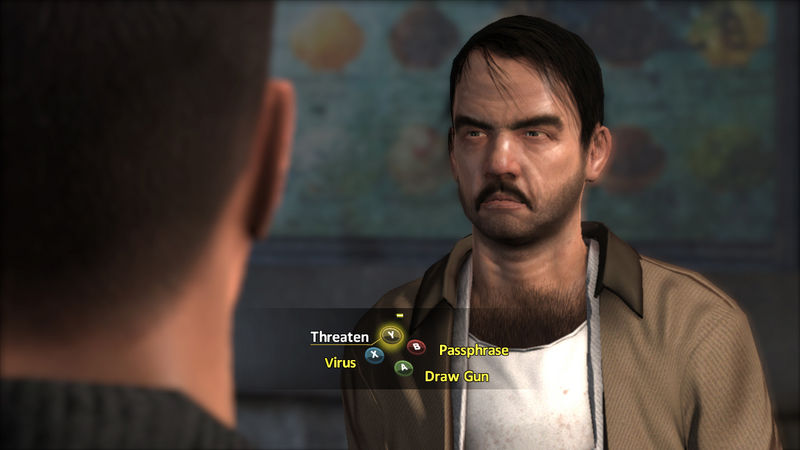
Alpha Protocol is a flawed experience, but its narrative and usage of morality was top-notch. Obsidian did a great job of allowing players to tackle conversations in different ways, and you can be more James Bond than Jack Bauer if you want to. By dealing in shades of gray, it's also not as simple as being good or bad as being more ruthless in some scenarios might be the best course of action.
-
The Elder Scrolls V: Skyrim
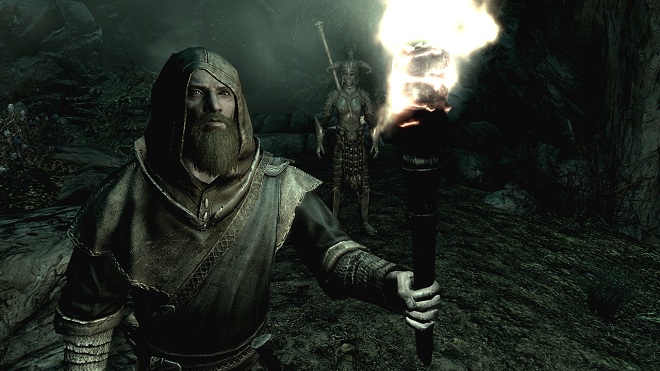
Bethesda are no strangers to morality systems as both their Fallout and Elder Scrolls games feature them. The Elder Scrolls V: Skyrim might have the best system yet, as it allows players to be good, evil, or somewhere in between if they wish. There's plenty of different factions to balance your reputation with, and actions often have rewards or consequences. This also makes the game very replayable, as you can have vastly different experiences in Skyrim depending on how you play.
-
Deus Ex: Human Revolution

Deus Ex has always been a series that has toyed with the concepts of good and evil. Deus Ex: Human Revolution is no different, and it will be up to players if they want to use lethal force or not. It's actually possible to get through the entire game without killing anyone, but it's up to players to decide if that's the proper way to go about things.





